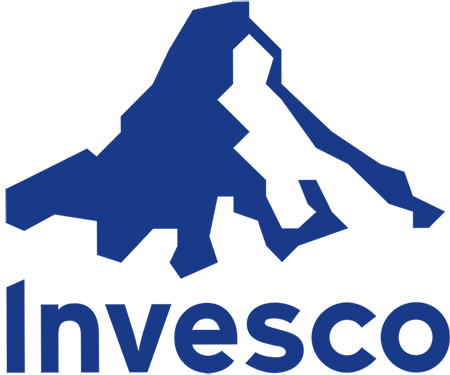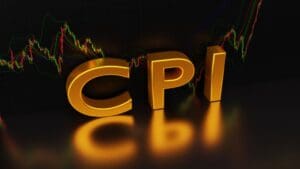Key takeaways
Looking forward
The inefficiency of benchmarks and their backward-looking nature make them a faulty roadmap for emerging market investors, in our view.
Avoiding risk
One of the underappreciated benefits of truly active management is the ability to avoid risks associated with state-owned enterprises.
Imagination, not extrapolation
Machines are not particularly adept at imagining a future that is different than the past, but human investors can.
The investment management landscape has changed dramatically in the past decade with the proliferation of passive investment vehicles and the genesis of machine learning. But while low-cost benchmark strategies may provide satisfactory exposure to well-established markets such as large-cap US equities, investment opportunities in emerging markets are evolving at a faster pace and in a more non-linear fashion than the developed world. Therefore, we maintain our contention that a select group of active managers will retain an edge in emerging markets by exploiting benchmark handicaps and applying differentiated and insightful research.
Here, we explore three reasons why we believe emerging markets (EM) are uniquely suited to an active approach.
1. Backward-looking approaches overlook the drivers of future growth
Passive funds are low-cost alternatives that replicate benchmark performance. In the US, 77% of assets under management in the large cap core space are passively managed. In the emerging markets, passively managed assets account for just 37%1 of the total.
The inefficiency of benchmarks and their backward-looking nature make them a faulty roadmap for emerging market investors, in our view. We believe that they are over-exposed to historical EM growth drivers and under-exposed to the dynamic drivers of the future — at both a regional and a sector level
- Investors in passive products who want to gain exposure to the dynamic areas of growth in EM instead end up with fairly large exposure to the more advanced EM economies like Korea and Taiwan and much of the Middle East, which have a combined contribution of 11.4% of EM gross domestic product but represent 35% of the MSCI EM benchmark2. (I explore this topic further in my previous article on Mexico as a neglected developing market.)
- Sector exposures in the index are also not representative of the best opportunities available to investors, in our view. For example, the benchmark is heavily skewed towards the traditional industries like banks (16%) and cyclical capital-intensive industries like autos, capital goods, and transportation (9%), while assigning low weights on new economy industries that are expected to achieve higher growth momentum across EM, such as health care (4%), technology software and services (2.6%) and hotel and leisure (1.3%).3
2. Avoiding risks can be as important as generating returns
One of the underappreciated, but invaluable, benefits of truly active management is the ability to help mitigate risks associated with state-owned enterprises (SOEs) or highly regulated entities where crony capitalists get favorable access to capital, tax deals, land, etc. Since the benchmark is essentially market-capitalization weighted, it mandates exposure to SOEs, most of which have poor track records on governance. For example, SOEs comprise 28% of MSCI China4.
This is a very important point in an era where there is increasing focus on Environmental, Social and Governance (ESG) frameworks. For us, ESG is not a simple screening and scoring exercise. It needs to start with first principles, which require active diligence – governance. In essence, governance is a company’s stewardship responsibility to all stakeholders including labor, suppliers, citizens, and investors when business decisions are considered and made. It should focus on the long term, rather than myopically on the needs of the State or short-term profit optimization. It is also about ensuring there are appropriate incentives that create “skin-in-the game” symmetries between owners and managers.
Valuation risks may not be fully appreciated in passive vehicles. Again, the backward-looking nature of indices, means that they are over-exposed to past “winners,” without regard for prospective earnings and valuations. So, instead of being allocated to the most fundamentally attractive companies, investors get caught up in very crowded trades that can unwind painfully. Active managers can avoid the pitfalls of this version of FOMO (fear of missing out) investing by maintaining a valuation discipline.
3. Machines extrapolate the past, but don’t imagine the future
Several years ago, when we first weighed in on the active vs. passive debate, we highlighted the role of machine learning, which implements data-driven approaches to make portfolio recommendations and uses complex algorithms to test sophisticated investment ideas. This has only gotten more prominent with the advent of technologies like ChatGPT large language models and other developments in artificial intelligence. The fact is that machines are inherently better than human investors at deep learning – including pattern recognition, understanding correlations and mean reversion – and can better exploit nuances in historical returns than traditional analysis. As a result, we expect machines will be far better than human intuition in credit cycles, inventory cycles and other cyclical trades.
It is clear to us, now more than ever, that the future for active managers does not reside in financial engineering or benchmark tracking tactics, which essentially extrapolate the past. Instead, we believe it lies in what machines are not particularly adept at doing (and what benchmarks may not do) – imagining a future that is different than the past, where there is an evolution of competition, disruption, real options embedded in new and adjacent businesses, better balance sheet structures, etc.
Take the evolution of the health care industry in EM as an example. The number of EM health care companies over $5 billion in market capitalization has increased by over 400% since in the last decade5. Within that, contract development and manufacturing organizations (CDMOs) have been big beneficiaries of the structural shift at big pharmaceutical companies towards capital efficient outsourcing and risk mitigation associated with very expensive, multi-year projects.
Companies like Wuxi Biologics and Samsung Biologic are beneficiaries of a healthy demand/supply dynamic where growth is driven by fast-growing demand for protein drugs and CDMO capacity is limited. Early on, Wuxi adopted a follow-the-molecule strategy, which allowed them to offer multiple lines of services to their customers as they grew. That has evolved into a win-the-molecule approach that allows complementary growth as they target later stage projects. In addition to its opportunities in CDMO, Samsung Bio also has growth opportunities associated with its investments in biosimilars, and prospectively, innovative discovery platforms. These companies are very small positions in the benchmark that, in our opinion, completely understate their potential6.
Conclusion
Unfavorable industry trends have historically created opportunities for truly skilled active managers. We believe that this environment favors those with an idiosyncratic approach and rewards genuine imagination and creativity in unearthing the rare breed of companies. As long-term EM investors, company fundamentals are especially crucial to us. Our investment method has always been the unwavering focus on unearthing high-quality compounders, instead of constantly chasing after moonshots. We believe that a long-term investor will be best served by gaining exposure to truly innovative EM companies that take advantage of structural tailwinds. The most profound investment opportunities lie in our ability to identify real options that have yet to be discovered.
—
Originally Posted April 3, 2023
Humans vs. machines: Who has the edge in emerging markets? by Invesco US
Disclosure: Invesco US
This does not constitute a recommendation of any investment strategy or product for a particular investor. Investors should consult a financial advisor/financial consultant before making any investment decisions. Invesco does not provide tax advice. The tax information contained herein is general and is not exhaustive by nature. Federal and state tax laws are complex and constantly changing. Investors should always consult their own legal or tax professional for information concerning their individual situation. The opinions expressed are those of the authors, are based on current market conditions and are subject to change without notice. These opinions may differ from those of other Invesco investment professionals.
NOT FDIC INSURED
MAY LOSE VALUE
NO BANK GUARANTEE
All data provided by Invesco unless otherwise noted.
Invesco Distributors, Inc. is the US distributor for Invesco Ltd.’s Retail Products and Collective Trust Funds. Institutional Separate Accounts and Separately Managed Accounts are offered by affiliated investment advisers, which provide investment advisory services and do not sell securities. These firms, like Invesco Distributors, Inc., are indirect, wholly owned subsidiaries of Invesco Ltd.
©2024 Invesco Ltd. All rights reserved.
Disclosure: Interactive Brokers Third Party
Information posted on IBKR Campus that is provided by third-parties does NOT constitute a recommendation that you should contract for the services of that third party. Third-party participants who contribute to IBKR Campus are independent of Interactive Brokers and Interactive Brokers does not make any representations or warranties concerning the services offered, their past or future performance, or the accuracy of the information provided by the third party. Past performance is no guarantee of future results.
This material is from Invesco US and is being posted with its permission. The views expressed in this material are solely those of the author and/or Invesco US and Interactive Brokers is not endorsing or recommending any investment or trading discussed in the material. This material is not and should not be construed as an offer to buy or sell any security. It should not be construed as research or investment advice or a recommendation to buy, sell or hold any security or commodity. This material does not and is not intended to take into account the particular financial conditions, investment objectives or requirements of individual customers. Before acting on this material, you should consider whether it is suitable for your particular circumstances and, as necessary, seek professional advice.



















Join The Conversation
For specific platform feedback and suggestions, please submit it directly to our team using these instructions.
If you have an account-specific question or concern, please reach out to Client Services.
We encourage you to look through our FAQs before posting. Your question may already be covered!